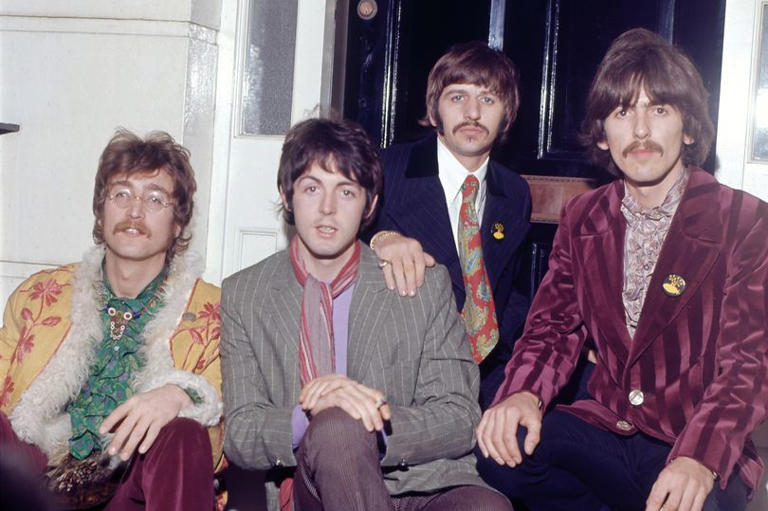The Beatles’ legendary discography is one of the most celebrated in music history. With songs that have become cultural touchstones and albums that defined entire generations, the band’s creative process has fascinated fans and music historians for decades. Most of their classics were crafted by the iconic songwriting duo of John Lennon and Paul McCartney, especially in the early years when they would sit down together in Paul’s childhood home on Forthlin Road in Allerton and write songs face to face, guitars in hand.
Despite the magic that usually came from those collaborations, not every Beatles track was born from inspiration or excitement. In fact, according to John Lennon himself, some songs didn’t come together naturally at all—and one particular track was even “forced” onto an album, much to the group’s frustration.
Throughout their career, The Beatles worked under immense pressure, often required to meet tight deadlines and fill out albums with complete tracklists. While many of their most famous songs came from moments of organic creativity, not every track followed that path. Lennon openly admitted that one of the songs released on a Beatles album was pieced together hastily, more out of obligation than passion.
Though Lennon didn’t always name the specific song in every interview, over time, many fans and music scholars have come to believe he was referring to tracks like “Mr. Moonlight” or “Run for Your Life”—songs he openly criticized in later years. “Run for Your Life,” in particular, appeared on the 1965 album Rubber Soul and has long been considered by Lennon as one of his least favorite Beatles compositions. He once remarked that it was a song he “always hated,” calling it a filler track that was written just to complete the album.
That’s a startling admission considering Rubber Soul is widely regarded as one of the Beatles’ most groundbreaking records. The album marked a turning point in the band’s artistic evolution, showcasing more introspective lyrics and sophisticated arrangements. Yet even in an album as lauded as Rubber Soul, not every track met the same creative standards—and Lennon wasn’t shy about calling that out.
The sense of something being “forced” didn’t just refer to songwriting, either. The Beatles’ hectic schedule in the 1960s meant they were constantly touring, recording, and appearing in media. There was little time to breathe, much less reflect deeply on every song choice. As a result, songs were sometimes rushed through the recording process or included simply because there was no time to come up with something better.
Lennon’s candor about these moments offers a fascinating glimpse behind the curtain of Beatlemania. Even in a band as extraordinary as The Beatles, creative compromise was sometimes unavoidable. Not every track could be a masterpiece—and even legends like John Lennon were not above feeling disappointed by the final product.
Still, the Beatles’ legacy remains untouchable, built on dozens of timeless songs that changed music forever. And even the “forced” ones are part of the story—reminders that behind the myth were four human beings, trying to meet deadlines, please fans, and push the limits of what pop music could be.

